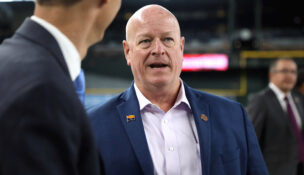Publicly funded congressional campaigns proposed
Arizona Capitol Reports Staff//March 23, 2007//[read_meter]
Publicly funded congressional campaigns proposed
Arizona Capitol Reports Staff//March 23, 2007//[read_meter]
Arizona Congressman Raul Grijalva is co-sponsoring the Clean Money, Clean Elections Act, which would implement a voluntary system of publicly funded campaigns for congressional contests. The bill, HR1614, was introduced...
No tags for this post.

















